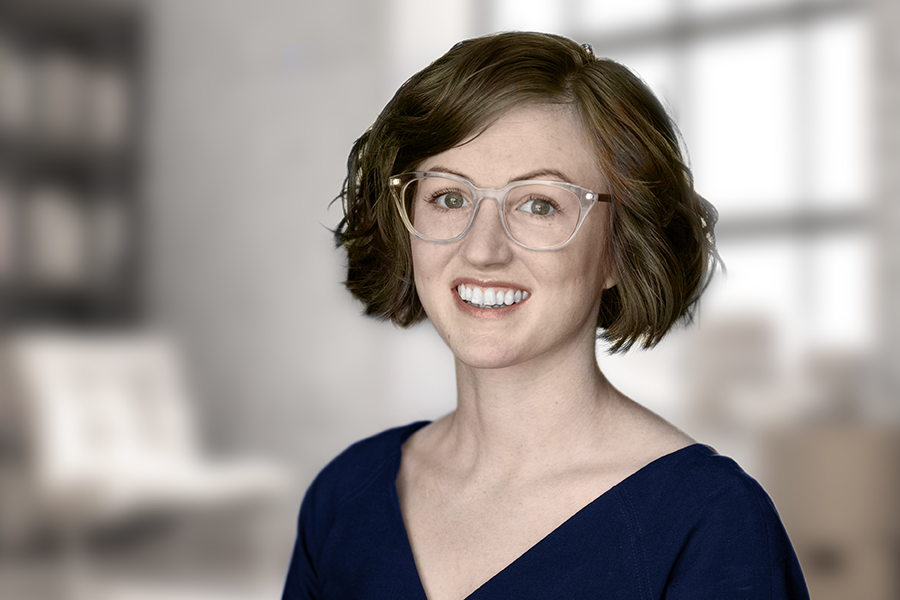
Bending History’s Arc
Alumna Cassie Miller uses the lessons of history to combat hate and extremism at Southern Poverty Law Center
By Amanda S.F. Hartle
As an undergraduate exploring in library archives, Carnegie Mellon University Department of History alumna Cassie Miller (DC 2011, 2016) fell in love.
“Sifting through rare materials, gathering what seems to be disparate pieces of information, bringing them together into a coherent argument, I love the craft and process of history,” Cassie says.
While digging up documents for research papers about the U.S. labor movement, class struggles and the fight for Black equality, she discovered a way to channel her passion for history into social justice change.
“It was painfully clear that all of the things I was studying, all those battles that had happened in the past, were ongoing,” Cassie says. “I couldn't be a student of history without feeling like the right place to be was alongside the people who were oppressed.”
Now as a senior research analyst for the Southern Poverty Law Center, she’s fighting today’s battles and helping write history.
"It was painfully clear that all of the things I was studying, all those battles that had happened in the past, were ongoing. I couldn't be a student of history without feeling like the right place to be was alongside the people who were oppressed."
Countering Hate and Extremism
From the center’s headquarters in Montgomery, Alabama — the birthplace of both the civil rights movement and the Confederacy — Cassie immerses herself in the U.S. white power movement.
She evaluates how groups like the Proud Boys, Boogaloo Boys, Atomwaffen and The Base are organizing online; where they’re acquiring adherents; and how they’re growing and infiltrating the mainstream with violent, anti-government rhetoric.
As part of the center’s Intelligence Project, which works to counter hate and extremism through research and analysis, she distills what she uncovers into pieces for the center’s Hatewatch blog, speeches to groups around the country, congressional briefings and media interviews.
“Race is a central question in America, it always has been,” Cassie says. “The white power movement is the product of decades of work to demonize, marginalize and disempower people of color. This is an organized social movement, and we can only counter it if we see it that way.”
Today, an increase in racially charged language, the country’s political atmosphere and endless online recruitment platforms combine to create a perfect storm of hate.
“These groups thrive in moments of uncertainty and political instability. In the past year, we've seen major growth in hate groups with white nationalist groups jumping in number from 100 to 155, a 55% increase, which is very significant,” Cassie says.
She admits numbers like these, which have drawn the attention of the FBI, can be overwhelming, but the goal is worth it.
“Even though the ideas of the white supremacists that I study are repulsive, it's because they're so horrible that I want understand them and why people are actually drawn to these beliefs,” Cassie says.
“If we don't understand them, then it's impossible to counter them.”
“History shouldn’t be just an academic pursuit. Even in technology, these are structures that are built by humans in a world that's shaped by people and their ideas. We need to understand other people and their lived experiences, and history is a good way of doing that."
The Lessons of Oppression
Cassie came to Dietrich College of Humanities and Social Sciences, where she earned her master's and doctoral degrees in history, to research the story of another population that faced oppression — Irish and Irish-Americans, with Department of History Professor David Miller, who passed away last year.
“I was the last student he accepted, so I try to carry on his legacy,” Cassie says. “Sitting in David's office every week, I learned to deconstruct historical monographs and ask the right questions. I learned to be a historian.”
She also credits Giant Eagle Professor of History and Social Justice Joe Trotter and the Center for Africanamerican Urban Studies and the Economy with providing her with invaluable learning experiences through speakers from both academia and the community.
Working across disciplines and with an array of other CMU historians helped form Cassie’s view of what a historian’s career should be beyond the expected persuasive writing, argument building and public speaking.
“History shouldn’t be just an academic pursuit. Even in technology, these are structures that are built by humans in a world that's shaped by people and their ideas,” Cassie says. “We need to understand other people and their lived experiences, and history is a good way of doing that.”